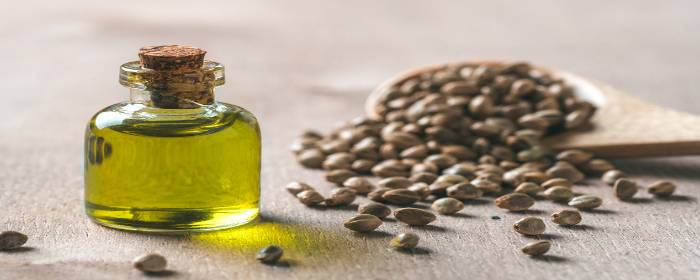
by admin | Jun 21, 2019 | Health Awareness
While migraines have left the medical community puzzled for many years, experts are establishing links among certain conditions which may leave individuals predisposed to them. In specific, recent studies indicated that patients with Multiple Sclerosis (MS) are at least three times as likely to experience migraines, compared to people who do not have the disease. While a concrete explanation for the link has yet to be established, there are some theories which researchers have speculated on.
Reasons for Migraines & MS
One possible explanation for the increase in migraines among MS patients is the fact that MS is at least two to three times more common in women than men, and women are also two to three times more likely to experience migraines compared to men.
Yet, there could be other mechanisms at play. For instance, altered pain perception and threshold could cause a more significant level of pain in patients with MS. And, patients with migraines are more likely to experience additional pain syndromes, including temporomandibular joint (TMJ) pain.
Addressing Migraines in MS Patients
Although the precise mechanisms behind the prevalence of migraines in MS patients may have yet to be identified, patients experiencing migraines can still find relief in the meantime. Since the link is still unknown, most doctors treat migraines and MS as separate entities. In general, most patients respond well to migraine treatments, but it’s also important to consider headache as a potential side effect from medications used to treat MS. In particular, disease-modifying drugs (DMDs) tend to illicit headaches, while as many as 80% of MS patients have described headaches as a symptom after beginning any form of MS therapy.
If you’re experiencing migraines, be sure to discuss the symptom with your doctor. In cases with severe, persistent migraines, expertise from a neurologist may be needed to aid in making informed treatment decisions.

by admin | Jun 12, 2019 | Health Awareness
Extreme temperatures can be uncomfortable for everyone, but for certain populations, summer weather is especially harsh – and in some cases, even dangerous. In particular, people with certain chronic illnesses may be at risk for heat-related complications. As you prepare for the warm season ahead, find out how you can beat the heat if you have a sensitivity below.
Conditions That Can Flare Up with Heat
Many conditions, even when controlled effectively, can be aggravated by extreme heat. These include, but are not limited to:
- Multiple Sclerosis: Multiple sclerosis (MS) affects the nervous system, triggering a number of symptoms including muscle weakness and pain. Many people with Multiple Sclerosis experience intensified symptoms in the heat, so much so that it’s been given a name: Uhthoff’s phenomenon. Even subtle body temperature increases can exacerbate symptoms, so do what you can to keep cool this summer. Limit outdoor activities, especially during the hottest part of the day, and wear light, breathable clothing.
- Migraines: The relentless summer sun can intensify or bring on migraines in individuals who are prone to them. While your best bet is to stay indoors in a cool, dark room when you experience an episode, you can still enjoy outdoor activities when you’re feeling up to it. Just be sure to wear large, polarized sunglasses, and arm yourself with a wide-brimmed hat to prevent excess light exposure.
- Rosacea: Characterized by redness and bumps, rosacea is a skin condition which can worsen with heat and sunlight. UV rays can lead to flare-ups, while excessive heat can dry out the skin, further triggering the condition. Most people with rosacea know to keep their skin protected during long stints of outdoor activity, but don’t forget about the shorter moments in between. Even walking into the grocery store or walking the dog can expose you to heat and sunlight.
- Autoimmune Disorders: Conditions such as Rheumatoid Arthritis and Lupus, known for causing joint pain, may be influenced by UV rays. Wearing protective clothing, or at the very least, applying an SPF 30 sunscreen or higher, may help.
- Respiratory Illnesses: The dry season tends to make breathing more difficult and uncomfortable for people with conditions like asthma and Chronic Obstructive Pulmonary Disease (COPD). One reason is the spike in wildfires. If you live near a zone prone to wildfires, minimize your outdoor time as much as possible, as air impurities can aggravate the lungs.
Of course, extreme heat can take its toll on anyone, including otherwise healthy older adults. Exercising indoors or in a cool pool, snacking on chilled, healthy treats like homemade ice pops, and staying in the air conditioning during the hottest parts of the day are a few simple yet effective practices for avoiding any heat-related complications all summer long.

by admin | Jun 7, 2019 | Health Awareness
Wednesday, May 29th was National Senior Health & Fitness Day. While health and fitness are important at every age and every day, making efforts to stay active and promote wellness as we age is especially important. Exercise can support healing, disease prevention, increased balance and stability, improve quality of life, and even reduce all-cause mortality. Yet, you don’t have to be a competitive athlete to enjoy the benefits of health and fitness. Explore some small changes you can make to feel better both now and into the future below.
5 Practical Health Tips for Seniors:
Pursue a Variety of Exercises
Being physically active doesn’t have to mean engaging in a heart-pounding sweat session every day. In fact, there are many types of physical activity you can perform for the following benefits:
- Aerobic activity to keep your cardiovascular system functioning well
Consider taking a brisk walk or working in the garden to get your heart rate up. If you’re interested in trying an aerobic workout without the risk of falls, consider an aquatic exercise program.
- Strength moves to maintain muscle mass
While you can lift soup cans, or a light set of handheld weights to increase strength, there are also many strength moves you can perform with your own body weight. Seated arm and leg raises, for example, can help to boost strength.
- Balance exercises to reduce fall risks
Many community fitness centers offer balance programs designed specifically for older adults, but you can also explore at-home exercises like standing on one foot for increasing periods of time (with a support system within reach).
- Activities to increase flexibility and reduce stiffness
Simple stretching routines such as touching your toes or overhead reaches can keep muscles limber while reducing stiffness. You might also consider trying a gentle yoga class or a guided video at home.
Warm Up & Cool Down
No matter how light your exercise may seem, it’s always a good idea to warm up and cool down thoroughly. To prevent pulling a muscle or any other sports-related injury, perform dynamic stretches like overhead reaches, twists, and toe touches to get the body warm before beginning an activity. Once your exercise is completed, gently stretch the muscles you used to cool down.
Keep in Touch with Others
Oftentimes we think of physical health when it comes to wellness, but mental health is equally as deserving of our attention. Isolation and loneliness can be common in senior populations, which is why older adults should make a point to stay active in social networks and the community. While social media platforms make it easier for elderly individuals to stay in touch with friends and loved ones, it’s also important to spend time in-person, too. Reach out to family members and friends often to stay in touch. Explore community events for seniors in your area, and consider volunteering for a local cause that speaks to you.
Eat a Variety of Healthy Foods
While exercising is a great way to stay healthy at every age, the food you eat plays just as critical a role in maintaining wellness. High-fiber, nutrient-rich foods are especially beneficial for seniors. Consider adding more vegetables, fruits, and beans to your diet to fill your plate with a variety of healthy foods. Low-fat and fat-free yogurt, cheese, and other milk products are also important for taking in enough vitamin D, which helps to maintain strong bones.
Ask Your Doctor About Supplements
Seniors have specific nutrition needs which even the healthiest diet may fail to meet completely. For example, vitamin B12 and D needs increase with age, and while there are some dietary sources available, it might be worthwhile to look into supplements. Your doctor can help you determine which vitamins and minerals you should be taking daily to optimize your health.

by admin | Jun 5, 2019 | Health Awareness
Within recent years, there has been increasing evidence to suggest gut bacteria plays a powerful role in many aspects of health. The microbiome, or microbial communities within our intestinal tract, have been a suspected agent behind many chronic conditions. Now, one study indicates gut flora may impact mental health, too.
Depression & Gut Bacteria
A recent study published in Nature Microbiology shows that individuals with depression had low levels of two types of “good” gut bacteria, Coprococcus and Dialister. The finding was consistent regardless of whether or not the subjects were taking antidepressants.
Interestingly, subjects who claimed to have a high mental quality of life were found to have plentiful levels of Coprococcus. The gut flora Faecalibacterium was also common among the same group.
While the study findings don’t outright prove that insufficient gut flora leads to mood disorders, they do strongly suggest a correlation. Moreover, it’s possible that the effect works in the opposite way, with mental health problems contributing to microbiome issues. The researchers further discovered that gut microbes can actually communicate with the body’s nervous system via neurotransmitters which support mental health.
The lead researcher said that many gut bacteria can produce neurotransmitters or precursors for critical substances like serotonin and dopamine, both of which play a role in regulating mood. Imbalances in these can also contribute to depression.
Based on this fascinating link, it’s possible that taking probiotics will one day become a prescriptive aspect of treating the effects of depression and perhaps boosting overall mood even in individuals without mental illness. In the meantime, discussing the option of probiotics as a means to promote disease prevention and overall health isn’t a bad idea anyhow. Your doctor may also suggest lifestyle tactics for boosting gut flora, such as incorporating probiotic-rich foods with live bacteria such as yogurt, sauerkraut, miso, and kefir into your diet. They may also suggest Vitamin A as a potential source to help as well.

by admin | May 28, 2019 | Cannabinoid, CBD, Health Awareness
Nowadays, you wouldn’t have to look very far to find advertisements for products containing hemp seed extract, or CBD oil. But how is this popular new solution made, and does it deliver on its promises to ease pain? Let’s explore what the compound consists of and how it may aid in pain management, below.
What is CBD Oil?
Cannabidiol, better known by the acronym “CBD,” is one of 104 chemical compounds derived from the hemp or cannabis plants. Typically, CBD is extracted from industrial hemp, then added to a carrier oil to form “CBD oil.” Because there are a number of different processes used to produce CBD oil, it can be found in varying strengths. As such, it’s advisable to consult with your physician before use.
Does It Help with Pain?
According to research published in 2017, adults suffering from chronic pain experienced “a clinically significant reduction in pain symptoms” when treated with CBD. In a separate study, CBD was proven to reduce pain and inflammation. Although the findings are fairly recent, experts believe cannabis has been used as a pain reliever for thousands of years.
The pain-relieving effect is believed to work as follows: The body has a system referred to the endocannabinoid system, or ECS, which regulates functions such as pain and immune system responses. It produces endocannabinoids, neurotransmitters which bind to the nervous system’s cannabinoid receptors. Research demonstrates that CBD may influence endocannabinoid receptor activity, thereby alleviating inflammation and interacting with neurotransmitters.
For example, CBD has been shown to minimize pain from surgical incisions, alleviate sciatic nerve pain, and reduce inflammation. It has also been used to treat symptoms of multiple sclerosis and arthritis.
What Are Its Additional Benefits?
Despite having been used for millennia, the research surrounding the potential benefits of the powerful plant derivative is ongoing. Possible applications may include treatment for anxiety, Alzheimer’s, epilepsy and seizures, and smoking cessation. Additionally, it is suspected CBD oil may hold promise for treating drug withdrawal, and in the future, conditions such as acne, diabetes, and cancer.
Currently, the legality of CBD oil varies by state, but the FDA has already approved CBD as a treatment for certain types of epilepsy. Thus, it’s possible that the compound could have a significant impact on treatment plans for chronic conditions in the future.
Visit our website for available hemp extract products. Click here

by admin | May 20, 2019 | Health Awareness
Age-related macular degeneration (AMD) is the most common cause of vision loss and affects more than 10 million people across the U.S., which is more than both glaucoma and cataracts combined. The condition is characterized by the deterioration of the central retina, or macula, which focuses on central vision. This important area of the eye enables reading, driving, recognizing faces and colors, and allows us to see objects in detail.
Although AMD is currently incurable, there are ways you can limit your risks, and if diagnosed, potentially control its progression. Discover more about the condition and key prevention strategies below.
What Causes AMD?
While the specific mechanisms behind AMD are still not conclusively known, experts are on the verge of making groundbreaking discoveries in the diagnosis and treatment of the condition. In particular, researchers from the National Institutes of Health (NIH) are exploring gene therapies as a prevention strategy, and have discovered that subtle gene alterations are responsible for 75% of a person’s risk for developing AMD. They have also pinpointed a daily regimen of vitamins and minerals which delays the onset of the more advanced phases of the condition by 25%.
How Can You Reduce Your Risk?
Although the definitive cause for AMD has yet to be discovered, there are known factors which are known to increase risk. For this reason, the following lifestyle modifications may be your best line of defense for preventing AMD:
- Quit or Avoid Smoking: Research indicates that smoking doubles the risk of AMD, so if you haven’t already quit, make a plan to do so.
- Control Your Blood Pressure: High blood pressure has body-wide implications, but in the delicate blood vessels in your eyes, its effects are especially pronounced. It is therefore essential for anyone experiencing hypertension to work closely with their doctors on controlling their blood pressure levels.
- Exercise: Regular exercise has been shown to protect against AMD. In particular, sedentary individuals were four times more likely to get AMD than those who exercised lightly at least 10 hours per week or moderately for 8 hours each week.
- Eat a Well-Balanced Diet: Based on the NIH’s AERDS study, experts believe high doses of critical nutrients, including vitamin C, vitamin E, beta-carotene, and zinc can slow the progression of both AMD and cataracts. This suggests nutrition may play a pivotal role in maintaining eye health with age, especially for at-risk populations including those with a family history of AMD.
- Consider Supplements: While diet should be your primary source for vitamins and minerals, even healthy eating patterns leave nutritional gaps. Moreover, participants in the aforementioned AERDS study who benefited from increased vitamin intake were given high doses which would be impossible to obtain through diet alone. If you have been diagnosed with early-stage AMD or face an elevated risk for the disease, consider discussing your supplement options with your doctor.







 St. Petersburg, Florida
St. Petersburg, Florida
